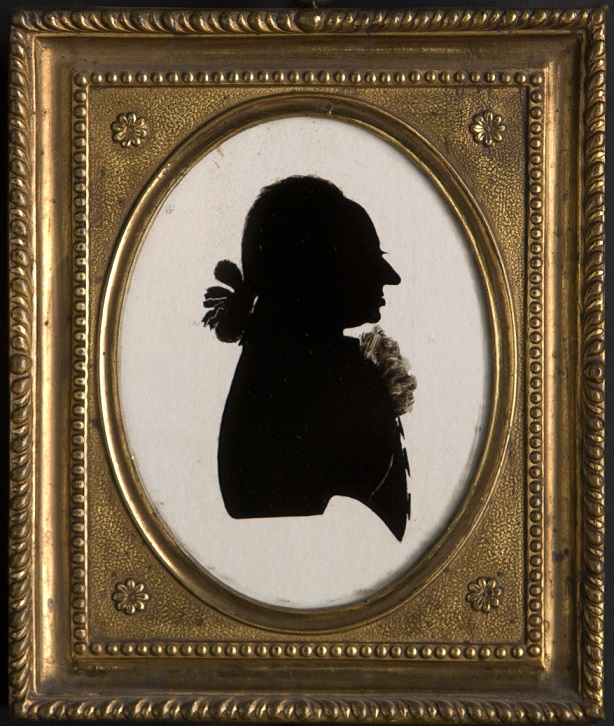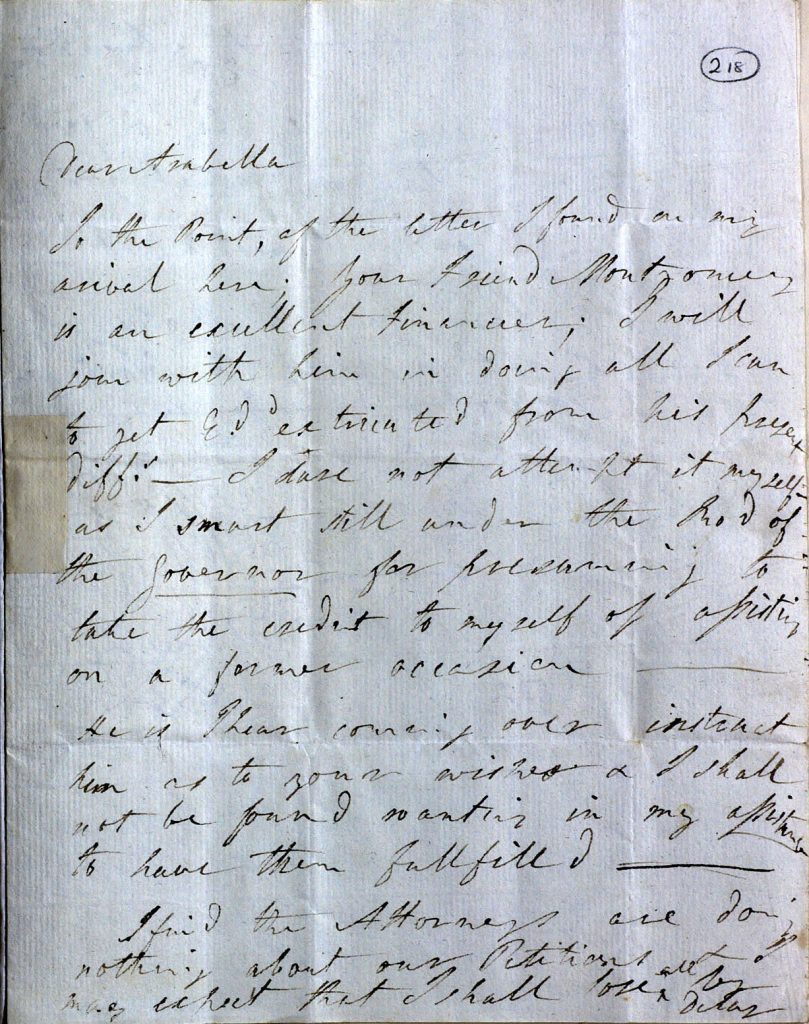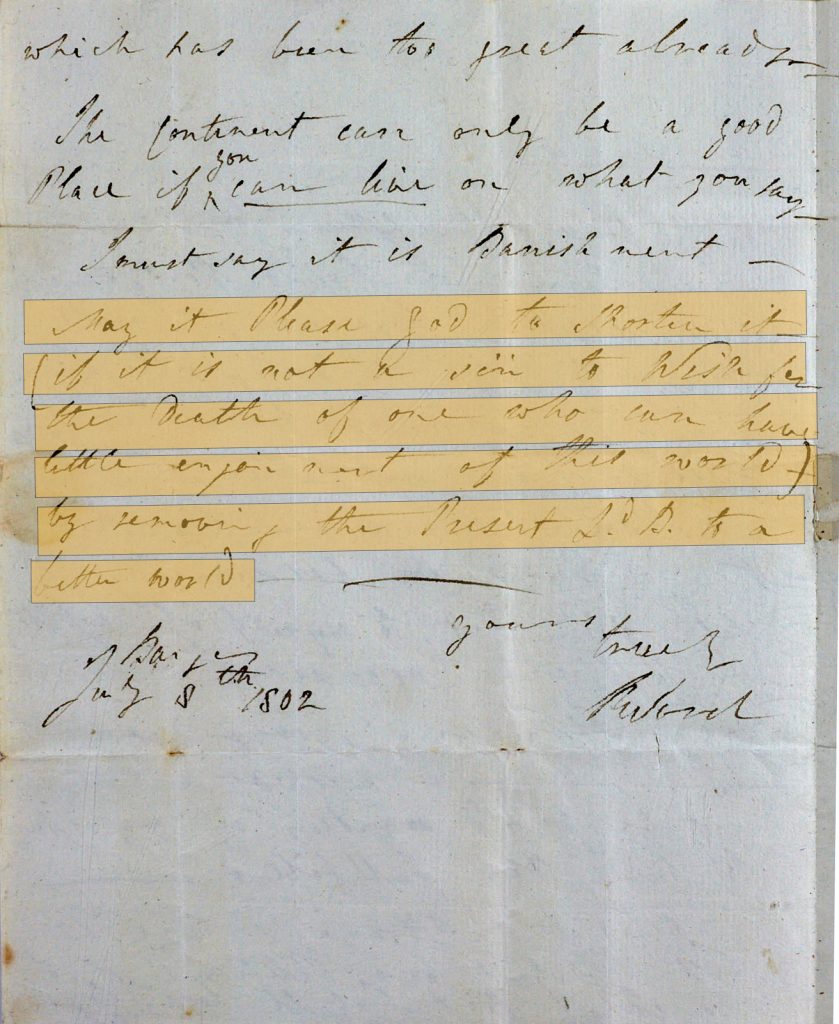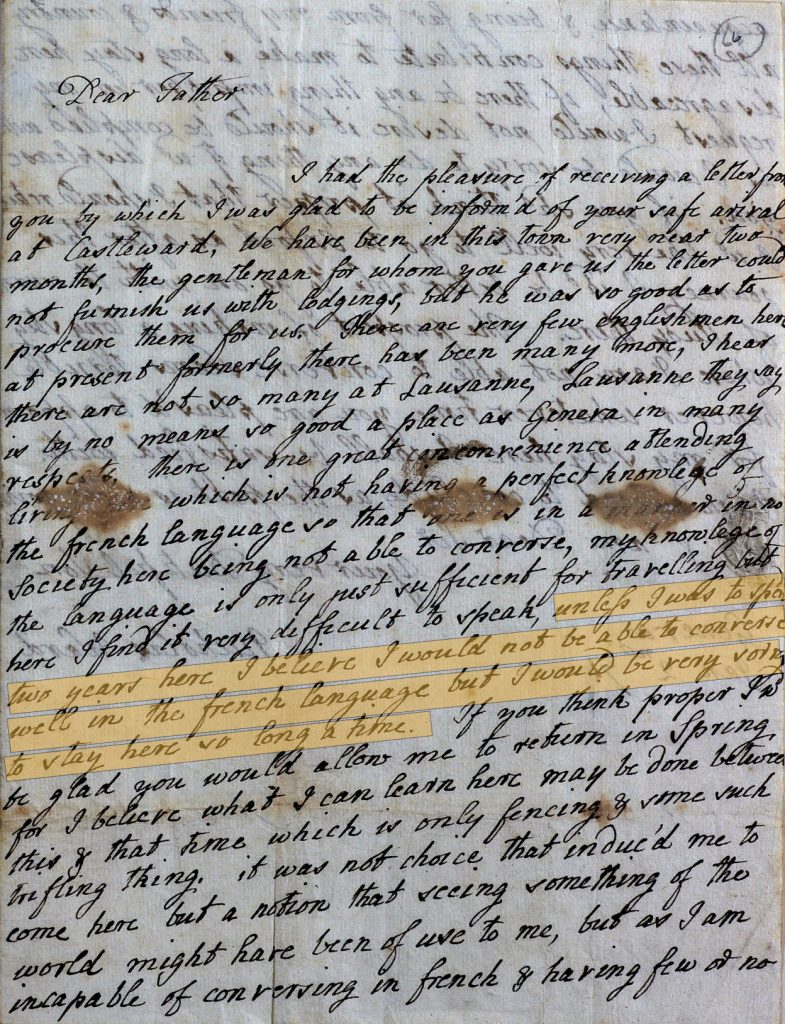Born in 1750, the story that tends to be told of Nicholas Ward, 2nd Viscount Bangor, is that he compromised the financial stability of his successors having been branded a ‘madman’ and ‘lunatic’ by his family. His public image and the records held about him were controlled by others. In 1785, on the petition of his brother and uncle, he was placed ‘under disability’ by a bill of the Irish House of Lords.
He was described as rude and unmanageable by his tutor, and the family’s actions prevented Nicholas inheriting the full Castle Ward estate and its wealth, as would have been typical of the eldest heir.

Nicholas Ward, 2nd Viscount Bangor (1750-1827) by Charles Rosenberg (Germany 1745 – 1844). © National Trust / Peter Muhly
In a letter written in 1802 by his brother, Robert Ward, we see the extent of the family’s contempt towards him: ‘May it please God to shorten it (if it is not a sin to wish for the death of one who can have little enjoyment of this world) by removing the present Lord B. to a better world‘.


Correspondence – 8 July 1802 Robert Ward, Bangor to Lady Arabella Ward, Weymouth. Image courtesy of the Deputy Keeper of the Records, the Public Record Office of Northern Ireland and the National Trust (D2092/1/9)
However, a closer look at the records reveal a more complex story. Nicholas set off on the Grand Tour like lots of wealthy young men. In his personal letters, he wrote of his loneliness and his difficulty in learning to speak French: ‘Unless I was to spend two years here I believe I would not be able to converse well in the french language but I would be very sorry to stay here so long a time’. He was also elected as an MP in the Irish House of Commons for Bangor from 1771 to 1775.
This tiny silhouette is the only record we have of Nicholas, a trace of a life about which we know very little.


Correspondence – 2 January 1771 Nicholas Ward, Geneva, to “Dear Father” Ld. Bangor, Sackville St., Dublin. Image courtesy of the Deputy Keeper of the Records, the Public Record Office of Northern Ireland and the National Trust (D2092/1/9)
References:
Public Records Office of Northern Ireland and the National Trust, catalogue reference number D2092/1/9.